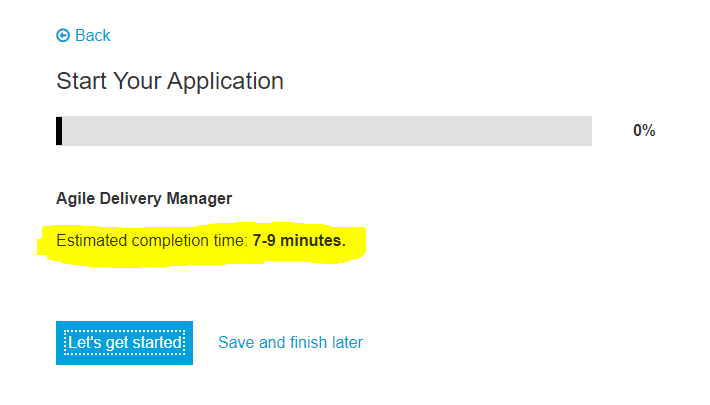One of the questions I get asked most often from those considering contract work is whether to work as a W2 contractor or should they consider 1099, or incorporate so they can bill corp-to-corp (C2C). The answer is – it depends – and it mostly depends on you.
If you are going to contract long term, or you have a particular expertise that you sell, eventually you will move from working as a W2 Contract Employee to being Independent / Incorporated – in other words: A vendor. These are not mutually exclusive, BTW. When you’re a vendor that means that you could be billing on a 1099 basis or you could be incorporated and use your corporation to bill the agent or client corp-to-corp (C2C).
When you choose to bill as an independent vendor that means you are viewed as a business, which is a separate legal entity, and completely different from being an employee. When you’re independent, you have all the privileges and responsibilities of a business owner.
“Responsibilities” is the key word here: If you choose either 1099 or C2C, you will take home a lot more money than you would as a W2 Employee. But if you are not prepared to handle the responsibilities (and risks) of being self-employed, mo’ money mo’ problems.
Whether you are a sole proprietor, in a partnership, or a principal of a corporation, if you are deriving “Schedule C” income, you are responsible for obtaining business licenses, paying business taxes, keeping accurate records, maintaining general liability, and other types of insurance. If you’re working as a vendor, you may need to purchase and maintain your own tools, equipment, prepare your own contracts, invoices, and track your payables and receivables. Some clients will provide you a 1099 form for taxes; some do not. Sometimes they’re accurate; sometimes not. Regardless, you are responsible for an audit trail of your gross receipts and expenses, maintaining bank records, and insuring you adhere to all applicable laws. If there is a discrepancy, you need to be prepared to prove everything.
When you are independent or incorporated, you are a vendor. Instead of a job description, you have a statement of work (SOW). The SOW details what you are to accomplish for the client, a time frame for doing so, and what are the payment and acceptance criteria. SOWs can be very general or very specific. There’s no “standard” SOW. Its specificity varies by the complexity of the project and your relationship with the client.
When you are a vendor, the client cannot dictate the manner and means by which you complete your work. So, if you wanted to assembly your PB&J in a different order in your kitchen that is your prerogative. The client can only accept or reject the work.
Most importantly, if you are billing as independent or incorporated, you do NOT have the same legal protections as you would if you were a W2 contract-employee. You are a vendor, just like the Crystal Geyser guy. If the customer decides to go with Sparkletts, Crystal Geyser doesn’t file for unemployment. If the delivery truck gets stolen, Crystal Geyser doesn’t ask the customer to buy them a new one. Similarly, like the Crystal Geyser vendor, you also have an implied warranty with your service. If something goes wrong, your service is defective, you drop your Pepsi on someone’s laptop, it’s not a “My bad!” you are financially liable for that expense. If your work is on the critical path of a project, be sure to talk to an insurance agent and your client to ensure you have the coverage you need. If you own things – like a house – and want to keep it, you’ll need to incorporate.
You want to run a business? Make big bucks? We live in a litigious society. Don’t take chances.
Unlike W2 workers, your client will want to pay you every 30 days just like they pay all their other bills. But, what if your client doesn’t pay you in 30 days? What if they pay you in 45 days or 60 days? Or not at all? How long will you keep working without being paid? A week? A month? Two months? How will you collect if they don’t pay? (A big concern in today’s “virtual” world.) What if they claim your work is defective, and they refuse to pay? Similarly, who pays for your travel expenses? Are you putting them on your own credit card and waiting for client to reimburse? What if they don’t reimburse you or take months to do so? I’ve worked in big corporate offices my entire life: You’d be amazed how many rich companies don’t pay their bills on time.
If you suffer from people pleasing, can’t say no, can’t write a contract, could never see yourself suing someone, or all this sounds just too unpleasant for you, don’t waste time billing as an independent or incorporated contractor. I’ve listened to lots of stories (mostly from women I’m sorry to say) who thought they could handle this kind of relationship, and ended up being taken advantage of by someone who was really, really going to pay them as soon as <somecrisis> passed.
There’s a certain amount of cold, hard, capitalism required when you truly work for yourself. I can assure you that no one is more unpleasant than someone who owes you money. You can’t put up with excuses. Other people’s bills and emergencies and sick kids are NOT your problem. Always track your hours and tasks; always keep copies of your work. Be prepared to withhold work until you are paid for it. Be prepared to walk off the job if you’re not paid on time, and be prepared to sue.
If you have a tough time sticking up for yourself, can’t handle people’s anger, or you’re afraid of being “mean,” being a vendor is absolutely not for you.
++++++++++++++++++
Excerpted from: The Temp Job: A Survival Guide for the Contingent Worker. Copyright 2021. Pierce/Wharton Research, LLC. All rights reserved. No part of this post shall be reproduced without permission. info@piercewharton.com.







